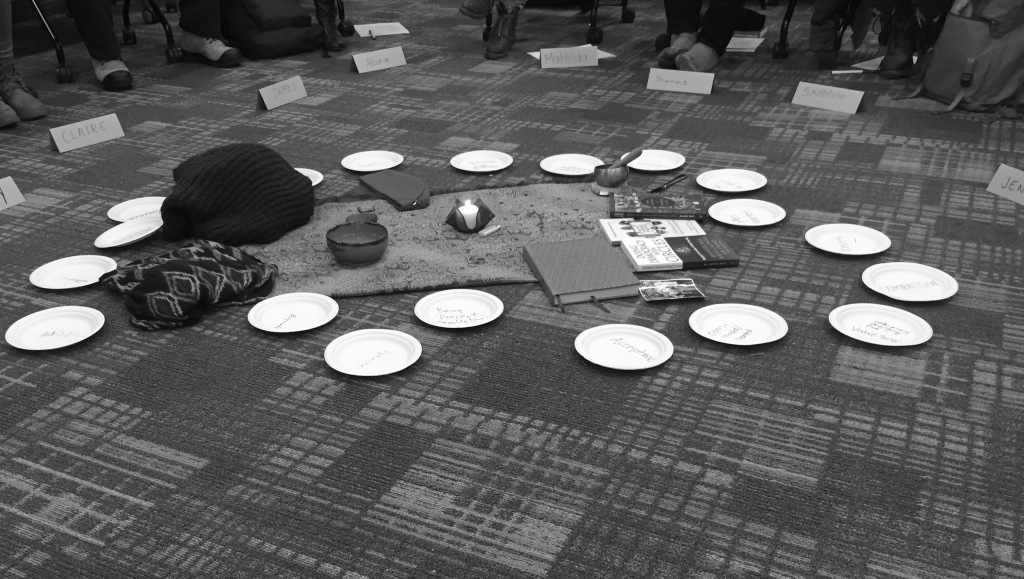Evolution of Self on Social Media


End of Year Reflections
Every person has a unique tradition of engaging with a concluding year. In the past 5 years, my end of a year tradition has been posing questions on Facebook to help me reflect on the year as it ends. This helps me to reorient my attention to the new year, as well as inviting my friends to respond to the questions as long as it reflects some of the experiences they have had in that year. I would, for instance, ask, what were your top 5 favorite books?” I would then list my own top five books, and organically my people would write down theirs and that would raise more questions for engagement, such as, “what did you find interesting about the book or what stood out?”

My favorite question to ask has always been, “what was your favorite word of the year and why?” Three years ago, I lived and worked in peace-building processes with Mennonite Central Committee in Chocó, Colombia. We spent most of the time reflecting on identity with the land and dignity and how they were central to most of the violent experiences of people in the country. And for a while, the word that described my experience in the rural Department/Province was dignity. Virtually, every Afro-Colombian I encountered and shared their known experiences of how their ancestors came to Colombia would conceptualize their understanding of territorial peace as having dignity, respect, and justice. In my private space, I spent time examining and thinking a lot about what dignity meant for me as an African woman in Chocó, who was not just an observed object in my new community but also a subject of the Afro-Colombian neighbors I got to spend time with. Dignity to me meant many things, including creating space to tell my comprehensive story, to be vulnerable with Afro-Colombian women who became my Hermanas (sisters) or my Madres (mothers) and to participate in their Lucha (struggle) for a dignified existence.

Reflection on Space
My favorite word for 2019 was space but I broke my own tradition of posing questions of reflection on my news feeds. Perhaps because I was exhausted in every way. Last year came with its own forms of transitions and incredible moments of growth for me. I was working two community transformation jobs in Uganda that involved many travel experiences across communities. I was mostly interviewing people for the organizational blog site I was writing stories for, or marketing a new community project my friend and I were working on in Lira, Northern Uganda. In effect, I got so physically and emotionally exhausted mostly by my observation and interpretation of the on-going political violence in my country as well as my demanding work schedule. And of course, I was also preparing to move here to Canada to study Peace and Conflict, in a distinctly new space. Interestingly, as we started to learn about the focus of the MPAC program on the role of civil society actors in building peace, and understanding the evolution of civil society ideas, the word space seemed to dominate classroom conversations. Some of the questions we raised related to space included: How can we live well in the spaces we are occupying? Who is and isn’t allowed to live well in such spaces? Or who does and does not participate in public, market, and/or non-governmental spaces? How can we locate our space as aspiring peacebuilding practitioners? Who does and does not occupy the spaces we want to participate in the practice of peace or living well? And how can we cultivate healing in our spaces?

Last semester, we got introduced to John Paul Lederach’s “web building theory and practice” in his book, The Moral Imagination: The Art and Soul of Building Peace. We learned about his emphasis on relational spaces as critical spaces in the processes of peacebuilding. We recognized how our role as aspiring peacebuilding practitioners is to identify and sustain such visible and invisible relational spaces in communities affected by protracted diverse forms of violence. Because it is these spaces that tend to restore the broken family, communal, or national relationships. And of course, some of us may not take Lederach’s insistence on building relationships or relational spaces as critical to the imagination of a peaceful society seriously. And I understand where we may be coming from. The truth is relationships are messy. Indeed, building relationships is a messy process, and so is identifying and sustaining the would be relational spaces to actualize an element of peace in communities affected by different forms of violence, especially armed violence. In the end, what looks like a simplistic approach to building peace, it turns out it is actually a very difficult approach.
MPAC Space
I have intentionally tied a few stories in this first blog because I wanted it to be an invitation for MPAC students who are interested in expanding their reflections on assigned readings beyond the confines of formal spaces. We can make this blog space a safe space for every participant by reflecting deeply on what it means to humanize, dignify, or to do justice. It is a space for us to share our critical observation of conflict, civic engagement, and peace in spaces we previously occupied or currently occupy.
***
